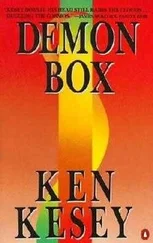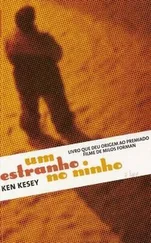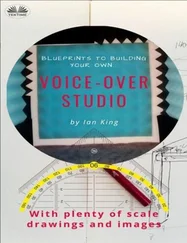I know how they work it, the fog machine. We had a whole platoon used to operate fog machines around airfields overseas. Whenever intelligence figured there might be a bombing attack, or if the generals had something secret they wanted to pull-out of sight, hid so good that even the spies on the base couldn’t see what went on — they fogged the field.
It’s a simple rig: you got an ordinary compressor sucks water out of one tank and a special oil out of another tank, and compresses them together, and from the black stem at the end of the machine blooms a white cloud of fog that can cover a whole airfield in ninety seconds. The first thing I saw when I landed in Europe was the fog those machines make. There were some interceptors close after our transport, and soon as it hit ground the fog crew started up the machines. We could look out the transport’s round, scratched windows and watch the jeeps draw the machines up close to the plane and watch the fog boil out till it rolled across the field and stuck against the windows like wet cotton.
You found your way off the plane by following a little referees’ horn the lieutenant kept blowing, sounded like a goose honking. Soon as you were out of the hatch you couldn’t see no more than maybe three feet in any direction. You felt like you were out on that airfield all by yourself. You were safe from the enemy, but you were awfully alone. Sounds died and dissolved after a few yards, and you couldn’t hear any of the rest of your crew, nothing but that little horn squeaking and honking out of a soft furry whiteness so thick that your body just faded into white below the belt; other than that brown shirt and brass buckle, you couldn’t see nothing but white, like from the waist down you were being dissolved by the fog too.
And then some guy wandering as lost as you would all of a sudden be right before your eyes, his face bigger and clearer than you ever saw a man’s face before in your life. Your eyes were working so hard to see in that fog that when something did come in sight every detail was ten times as clear as usual, so clear both of you had to look away. When a man showed up you didn’t want to look at his face and he didn’t want to look at yours, because it’s painful to see somebody so clear that it’s like looking inside him, but then neither did you want to look away and lose him completely. You had a choice: you could either strain and look at things that appeared in front of you in the fog, painful as it might be, or you could relax and lose yourself.
When they first used that fog machine on the ward, one they bought from Army Surplus and hid in the vents in the new place before we moved in, I kept looking at anything that appeared out of the fog as long and hard as I could, to keep track of it, just like I used to do when they fogged the airfields in Europe. Nobody’d be blowing a horn to show the way, there was no rope to hold to, so fixing my eyes on something was the only way I kept from getting lost. Sometimes I got lost in it anyway, got in too deep, trying to hide, and every time I did, it seemed like I always turned up at that same place, at that same metal door with the row of rivets like eyes and no number, just like the room behind that door drew me to it, no matter how hard I tried to stay away, just like the current generated by the fiends in that room was conducted in a beam along the fog and pulled me back along it like a robot. I’d wander for days in the fog, scared I’d never see another thing, then there’d be that door, opening to show me the mattress padding on the other side to stop out the sounds, the men standing in a line like zombies among shiny copper wires and tubes pulsing light, and the bright scrape of arcing electricity. I’d take my place in the line and wait my turn at the table. The table shaped like À cross, with shadows of a thousand murdered men printed on it, silhouette wrists and ankles running under leather straps sweated green with use, a silhouette neck and head running up to a silver band goes across the forehead. And a technician at the controls beside the table looking up from his dials and down the line and pointing at me with a rubber glove. “Wait, I know that big bastard there — better rabbit-punch him or call for some more help or something. He’s an awful case for thrashing around.”
So I used to try not to get in too deep, for fear I’d get lost and turn up at the Shock Shop door. I looked hard at anything that came into sight and hung on like a man in a blizzard hangs on a fence rail. But they kept making the fog thicker and thicker, and it seemed to me that, no matter how hard I tried, two or three times a month I found myself with that door opening in front of me to the acid smell of sparks and ozone. In spite of all I could do, it was getting tough to keep from getting lost.
Then I discovered something: I don’t have to end up at that door if I stay still when the fog comes over me and just keep quiet. The trouble was I’d been finding that door my own self because I got scared of being lost so long and went to hollering so they could track me. In a way, I was hollering for them to track me; I had figured that anything was better’n being lost for good, even the Shock Shop. Now, I don’t know. Being lost isn’t so bad.
All this morning I been waiting for them to fog us in again. The last few days they been doing it more and more. It’s my idea they’re doing it on account of McMurphy. They haven’t got him fixed with controls yet, and they’re trying to catch him off guard. They can see he’s due to be a problem; a half a dozen times already he’s roused Cheswick and Harding and some of the others to where it looked like they might actually stand up to one of the black boys — but always, just the time it looked like the patient might be helped, the fog would start, like it’s starting now.
I heard the compressor start pumping in the grill a few minutes back, just as the guys went to moving tables out of the day room for the therapeutic meeting, and already the mist is oozing across the floor so thick my pants legs are wet. I’m cleaning the windows in the door of the glass station, and I hear the Big Nurse pick up the phone and call the doctor to tell him we’re just about ready for the meeting, and tell him perhaps he’d best keep an hour free this afternoon for a staff meeting. “The reason being,” she tells him, “I think it is past time to have a discussion of the subject of Patient Randle McMurphy and whether he should be on this ward or not.” She listens a minute, then tells him, “I don’t think it’s wise to let him go on upsetting the patients the way he has the last few days.”
That’s why she’s fogging the ward for the meeting. She don’t usually do that. But now she’s going to do something with McMurphy today, probably ship him to Disturbed. I put down my window rag and go to my chair at the end of the line of Chronics, barely able to see the guys getting into their chairs and the doctor coming through the door wiping his glasses like he thinks the blurred look comes from his steamed lenses instead of the fog.
It’s rolling in thicker than I ever seen it before.
I can hear them out there, trying to go on with the meeting, talking some nonsense about Billy Bibbit’s stutter and how it came about. The words come to me like through water, it’s so thick. In fact it’s so much like water it floats me right up out of my chair and I don’t know which end is up for a while. Floating makes me a little sick to the stomach at first. I can’t see a thing. I never had it so thick it floated me like this.
The words get dim and loud, off and on, as I float around, but as loud as they get, loud enough sometimes I know I’m right next to the guy that’s talking, I still can’t see a thing.
Читать дальше












